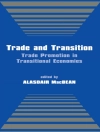No movement resembling American social conservatism exists anywhere else in the world of affluent democracy encompassing western Europe and Japan. This simple, undeniable fact has led many commentators to treat social conservatism as a “retro” movement soon to disappear in the U. S. as well, an inevitable (if lagging) casualty of global modernization.
Author and political activist Jeffrey Bell argues that social conservatism is uniquely American because it is in reality an outgrowth of American exceptionalism. It exists here because the founding principles of the United States—centering on the belief that humanity receives its equal rights directly from God rather than from government—retain a mass following among American voters, even in the wake of abandonment of belief in America’s theistic founding by elites and institutions that once espoused it. This allegiance to the founding, rather than some quasi-theocratic project by what is frequently misnamed the “religious right, ” accounts for social conservatism’s comparatively recent birth and persistent strength in U. S. politics—and also for its absence in societies whose foundings were not rooted in the universality of God-given human rights.
Bell argues that a worldwide upheaval in the 1960s set the stage for the rise of social conservatism, which had no earlier political existence. The 1960s upheaval resulted in the triumph of the social agenda of the left, particularly the sexual revolution, among elite opinion in the United States as well as in Europe, Japan and elsewhere. In subsequent decades the global left has sidelined its century-long drive for socialism and returned to its late-eighteenth-century roots in the thought of Jean-Jacques Rousseau and the radical French revolutionaries known as the Jacobins, who believed human fulfillment depends on liberation from most civilized institutions, particularly organized religion and the family.
Despite the many predictions of its demise, social conservatism has gained and held popular strength in the U. S. because of its roots in a theistic version of the European enlightenment of the 17th and 18th centuries, which Bell describes and analyzes as the “conservative enlightenment.” It is a rich, optimistic belief system that not only dominated the American founding but transformed society in the English-speaking world and remains an attractive alternative in the eyes of many of the world’s peoples—certainly in comparison to the competing universalisms advocated by the left enlightenment and by the anti-egalitarian Islamic revival. The ability of social conservatism and of its parent, the conservative enlightenment, to revive and spread this natural law-centered democratic vision could reshape the battle of ideas that increasingly defines our post-Cold War world.
Mengenai Pengarang
Jeffrey Bell played an active role in federal tax budget reform as an aid to Ronald Reagan in the 1970s and 1980s. A graduate of Columbia and a veteran of the U.S. Army in Vietnam, Bell served as a fellow of the Kennedy Institute of Politics at Harvard, visiting professor at the Eagleton Institute at Rutgers, and as the De Witt Wallace Fellow in Communications at the American Enterprise Institute in Washington. He presently serves on the Board of Directors of the American Conservative Union and of the Campaign Finance Institute at George Washington University. Since 2007, he has been a visiting fellow at the Ethics and Public Policy Center in Washington.
In 2010, Bell became director of policy of the American Principles Project, a Washington-based advocacy group. His most recent book,
Populism and Elitism: Politics in the Age of Equality, was named “the most important political book” of 1992 by Fred Barnes in
The New Republic. Bell and his wife, Rosalie O’Connell, have four children and live in Annandale, Virginia.












